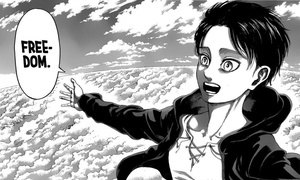<span class="html-content"><p><span class="html-content"></span></p><p>Once, in the Northern part of France, in the Parisian Cafes on the left bank, a diminutive son of a sailor named Jean Paul Satre was playing his part in making philosophy cool. He was a famous thinker who dealt with a branch of philosophy described as existentialism. After one of my essays on how we matter on a cosmic scale, I got into a discussion where someone said: “ Each of our potentials is crazy, and this universe is so massive that being lost and forgotten is very easy.” There was more to the conversation, and my post about cosmic significance meant something a little different - but it got me thinking about two things. Existentialism, and my best film of 2022: ‘Everything everywhere all at once’.</p><p></p>
<p></p><p>I’m heavily biased towards this picture for some reasons; it describes the limitless potential we might all hold and the different circumstances the universe could, theoretically, allow us to express ourselves within. It even shows a noble way to maybe deal with the bizarre versions of everything. I return to Satre. In his thoughts and literature, he put forward the idea that the absurd nature of existence was freeing - it liberated us from any predestined purpose. Like the other existentialists, he believed we had so much we could be, so we should take responsibility for choosing our own meaning. “Being precedes essence”. This school of thought took hold as people became increasingly disinterested in religion and metaphysics. </p><p></p>
<p></p><p>The movie, Everything Everywhere All At Once follows Evelyn Quan Wang, a stressed failure of a woman who discovers that she is connected to every version of herself in every possible universe. She sees the versions of her that mysteriously each excels at all the many hobbies she currently clings to in her life. She even discovers she is the one Evelyn that has failed to excel at even one. As she navigates this complex web of connections, she begins to understand that every choice she makes has a ripple effect that echoes throughout the multiverse. She even has the unique opportunity of glimpsing all of the possible versions of reality all at once. It nearly breaks her. She glimpsed what the existentialists defined as the absurd - the meaningless sphere of existence with no inherent purpose. The absurdity of it all had broken the antagonist, Jobu tupaki</p><p></p>
<p></p><p>At first, this realization takes her to the point where nothing matters. She imagines if every choice we make is insignificant in the grand scheme of things, then what's the point of trying? But Evelyn’s journey teaches us that the opposite is true. Every choice we make is connected to something bigger than ourselves, and even the smallest action can have a profound impact. I realised long ago; in the face of a meaningless universe, a brave and kind disposition, bearing your cross of purpose in that uncertainty is not the only logical conclusion. People can logically decide nothing matters; people can logically despair.</p><p></p>
<p></p><p>In this film, however, Evelyn makes a calm and brave choice to fight for the family and life she currently has, but also telling is how two other characters decided to deal with the mass of nothingness that surrounds them. Waymond Wang, Husband to Evelyn, interrupts a big bloody fight in the end to preach kindness; he tells everyone he knows they are fighting because they’re confused. “Please be kind, especially when we don’t know what’s going on”, he says. As he speaks, Evelyn lives a memory of another life with a Waymond she could not marry. “You think I'm weak, don't you? ……. When I choose to see the good side of things, I'm not being naive. It is strategic and necessary. It's how I've learned to survive through everything. I know you see yourself as a fighter. Well, I see myself as one too. This is how I fight”.</p><p></p>
<p></p><p>It’s the most moving part of the film for me, and I bring it up not because I’m prescribing kindness as a remedy to the questions of purpose in an absurd universe; I bring it up because whether you have an infinite view of reality like Jobu Tupaki or on the other end, you’re just as confused as Waymond, Satre and the existentialists are saying you get to choose how you fight. You have all the say in how you face all the versions of yourselves. Maybe it’s a lot. I call it the dizzying wind of transcendence. But you can be many other yous, or you can stay right there even if all you arm yourself with is kindness.</p>
<p></p>
</span>








Comments